Ecoboard Shaper Highlight 005: Using Tradition to Define the Future with Sergi of Flamasurf
by Kailani Wetherell for Sustainable Surf. 02 February 2024.
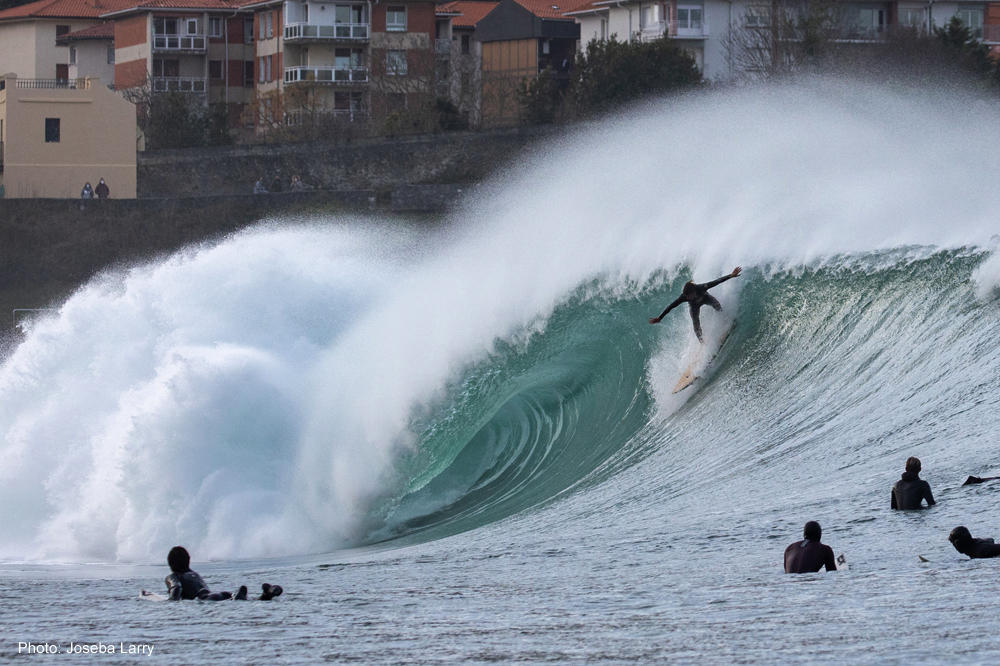
Nestled off the coast in a charming town adjacent to bustling Barcelona, Spain, a small workshop thrives, dedicated to crafting extraordinary wooden surfboards. Building boards under the label Flamasurf, founder Sergi is aiming to redefine the surfing industry. This venture took root in 2008 when an article extolling the virtues of paulownia wood captured his attention. Initially hesitant to delve into surfboard creation due to concerns about chemicals and toxicity, Sergi shifted his perspective as he envisioned a new possibility – a way to sidestep the conventional fiberglassing process.
In that transformative moment, Sergi’s myriad of passions – surfing, carpentry, design, and environmentalism – converged into a singular vision. He committed himself to resurrecting the tradition of 100% organic surfboards, reminiscent of the era when wooden boards left a minimal environmental footprint.
Thus, Flamasurf was born.
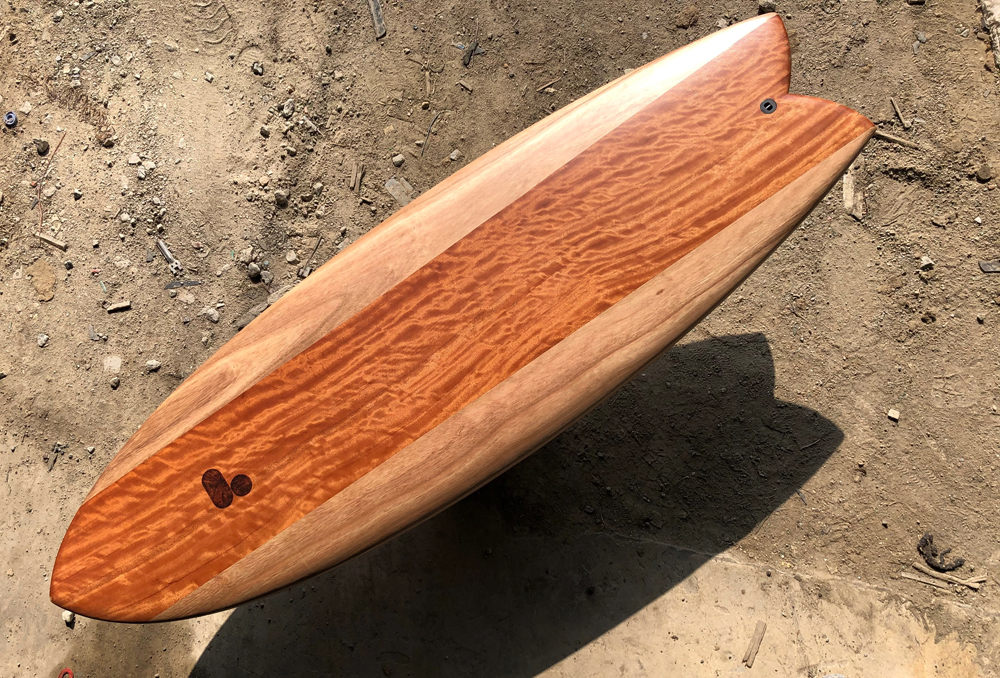
With the development of hollow unglassed construction, dubbed FlamaClassic, the boards Sergi’s making were 99% organic. Yet, not content to rest on his laurels, he pursued further advancements. He shortly welcomed the introduction of FlamaEvolve construction, featuring vacuum-bagged paulownia skins over EPS and cork rails. A process that yielded lighter boards with enduring performance and easy maintenance.
Sergi’s dedication garnered recognition as he now holds the achievement for being the first European builder to get the Gold Level ECOBOARD certification for his innovative technologies. Unyielding in his pursuit, he sought out the possibility of making sustainable alternatives accessible to artisan shapers, acknowledging the challenge of disrupting a surfboard industry entrenched in decades-old practices.
A visionary mastermind and perpetual innovator, Sergi consistently explores sustainable alternatives for crafting surfboards. Pursuing this goal from the very beginning, his aim is to make these alternatives accessible and straightforward for artisan shapers. However, a significant hurdle in achieving these sustainable practices arises from the fact that the traditional surfboard-making process, simple and effective as it has been, once appeared insurmountable to challenge. “We’ve been producing surfboards the same way and with the same toxic materials with barely any changes over the past 70 years. And the little developments we’ve seen have been always kept secret or protected with patents and heavy marketing, which limited any possible evolution towards a more sustainable industry” Sergi details. “ If there’s going to be any progress in that direction, it’s not going to come from the big industry, as their way of operating obeys the same capitalist practices as any other industry. After more than a decade committed to finding alternatives for building sustainable surfboards I feel it is time to spread the word, especially among local artisan shapers. They’re the roots of the surfboard industry and the ones that create true surf culture. If there’s going to be any change, it should come from the base.”
Inspired by this realization, Sergi initiated FlamaCircular, an endeavor aimed at leveraging his technologies and expertise to collaborate with artisans, fostering change through shared knowledge. His overarching objective? To cultivate a community dedicated to a more sustainable surf culture, bridging the gap for remote builders by providing real-time knowledge. This initiative drives ongoing research, aiming to eliminate the paradox of unsustainable surfing.
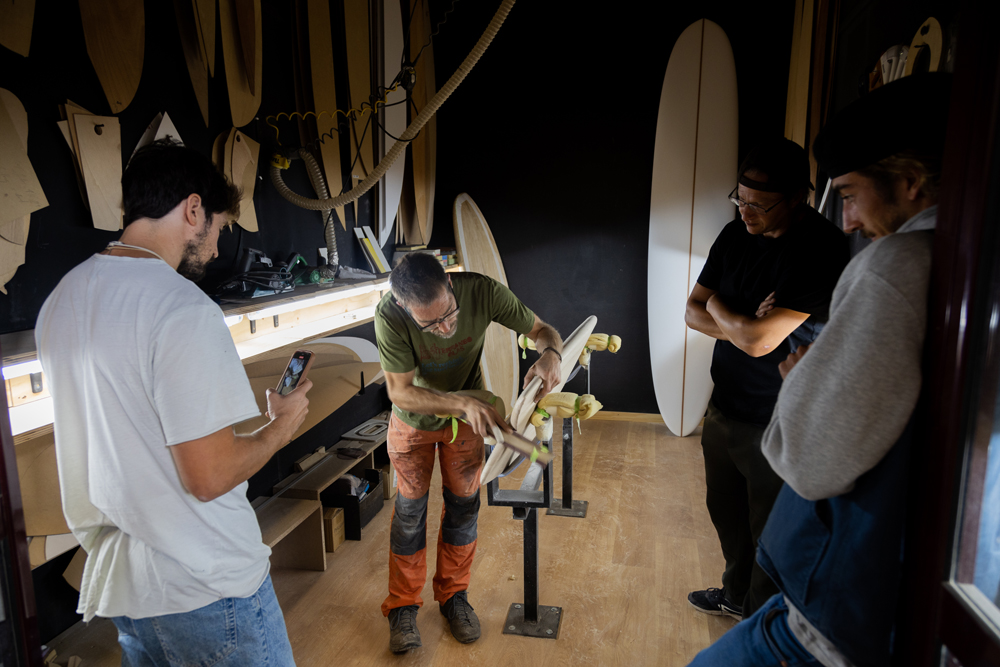
After three years of intensive development, the culmination of Sergi’s efforts materialized in the form of FlamaVolta technology. This innovative lamination process incorporates veneer and natural cloth, such as flax or hemp, to craft a remarkably robust composite. Using only varnish as a finish, FlamaVolta offers a myriad of possibilities – working with PU glue or epoxy, PU foam or EPS, with or without a stringer, and the option to incorporate inner reinforcements for manipulating flex and torsion. It unveils an entire sustainable realm, all achieved through a straightforward process closely aligned with traditional construction, enriched by the introduction of vacuum bagging.
At the end of the day when it comes down to it, Sergi’s excitement lies in what he’s done and what’s to come. After 15 years, he’s been able to create different technologies without using resins and fiberglass, and minimizing the waste of surfboard production. And the best of all is that he still has a bag full of new ideas to try!
Sergi remains amazed at the growing number of sustainable alternatives that are appearing all over the world. All sorts of technologies that can compete with any traditional tech, producing longer lasting boards with equal if not better performance, at a much lower environmental impact, and, which is very important, at market prices. His excitement extends beyond his workshop, as he has actively started giving courses in collaboration with local surfboard factories, so they can learn his techniques while he’s teaching students that come to participate in the course. He continues to promote the future of sustainable surfboards through global outreach, talks, and events and has currently taken on a very exciting project with the NGO Vanderful.org . In collaboration, they’ll be traveling to Mozambique next April to teach a local shaper who’s already building wooden boards. While there, they’ll hone in on helping him build boards “the African way”, with local materials and resources to minimize import efforts, while ridding the use of traditional fiberglass and resin.
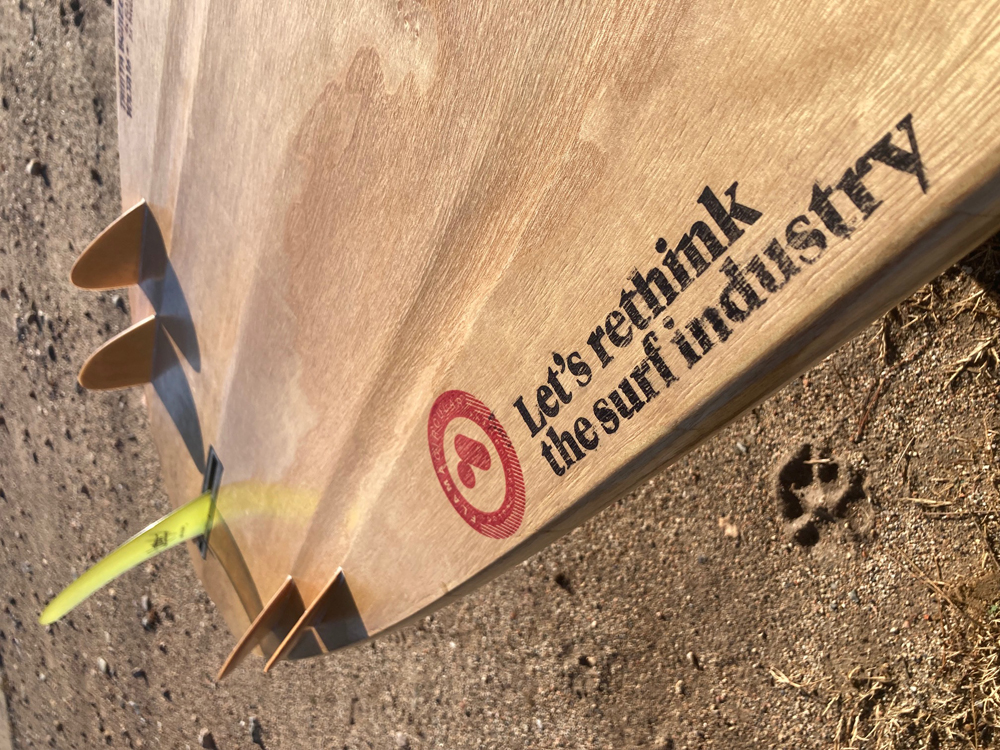
In Sergi’s eyes, the burgeoning array of sustainable alternatives worldwide signals a transformative era. With longer-lasting boards, comparable or superior performance, reduced environmental impact, and competitive market prices, the case for choosing a sustainable surfboard is clear.
As he looks ahead, Sergi emphasizes that the time for sustainable surfboards is now. With plans and projects on the horizon, he encourages taking it step by step, a mantra that echoes his journey of continuous innovation and sustainable practices.
“There is no reason today for not purchasing a more sustainable surfboard. The alternatives are already a reality. There are many plans and projects coming, but let’s take it step by step!”
For a deeper dive into Sergi’s mission, explore his work on Instagram @flamasurf.
